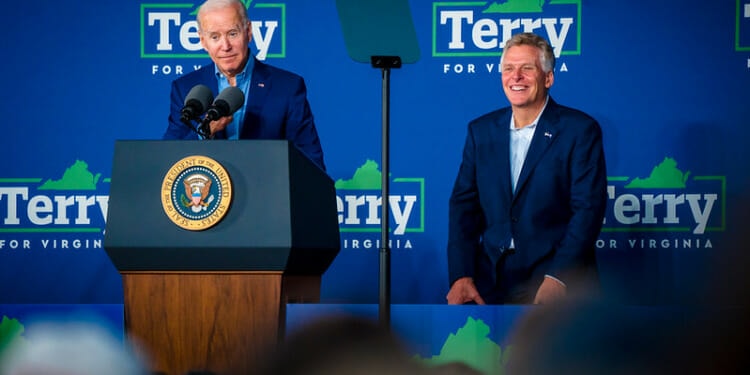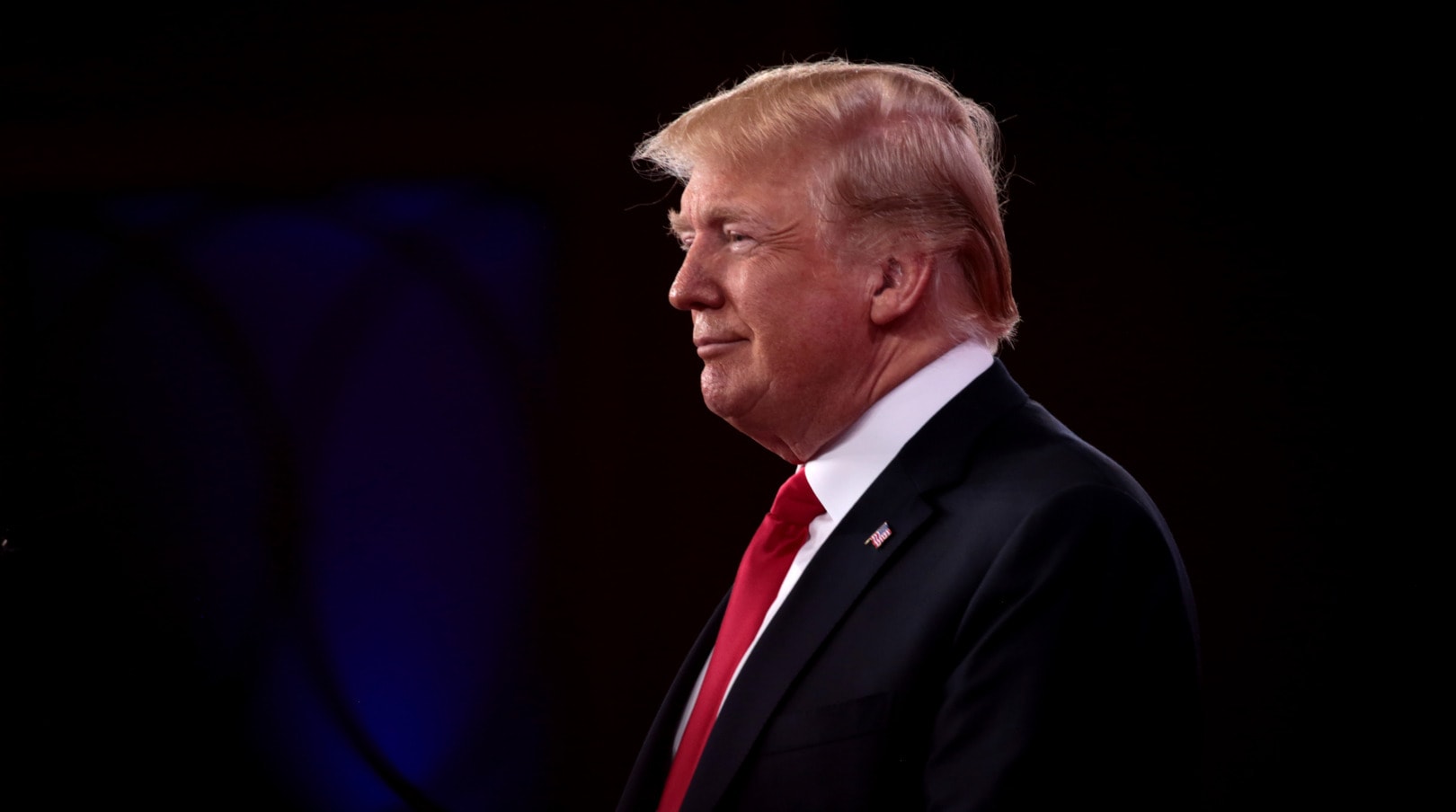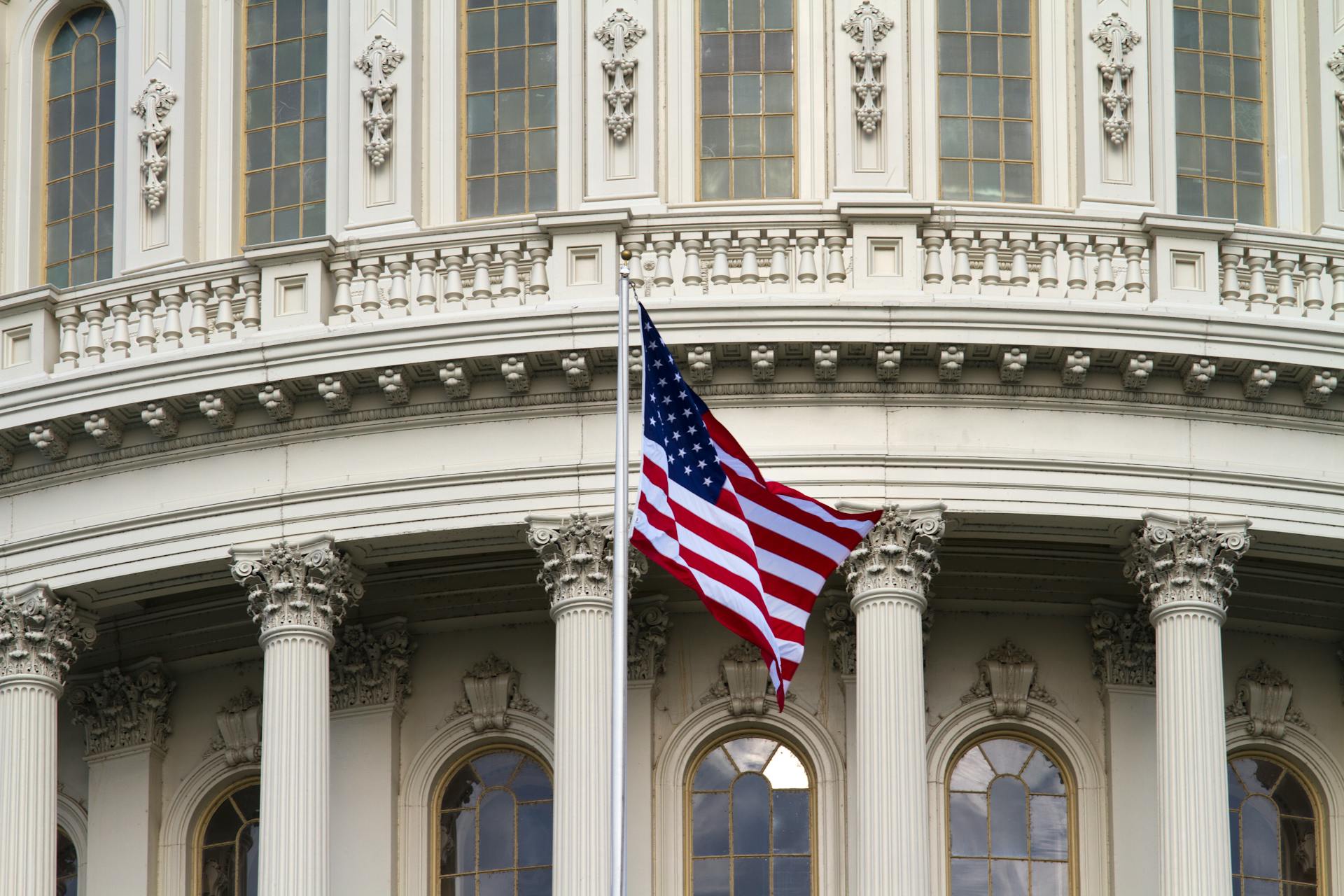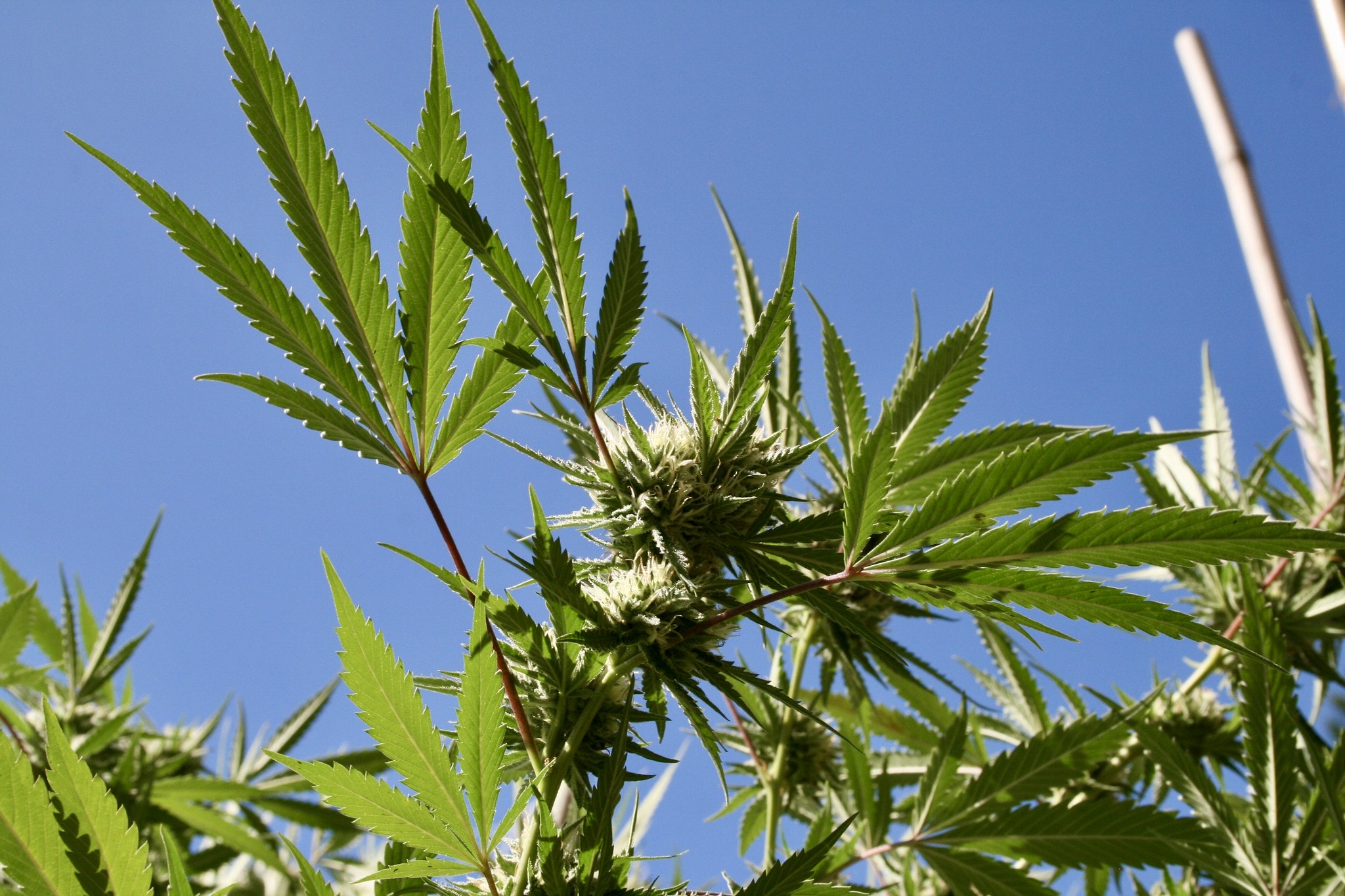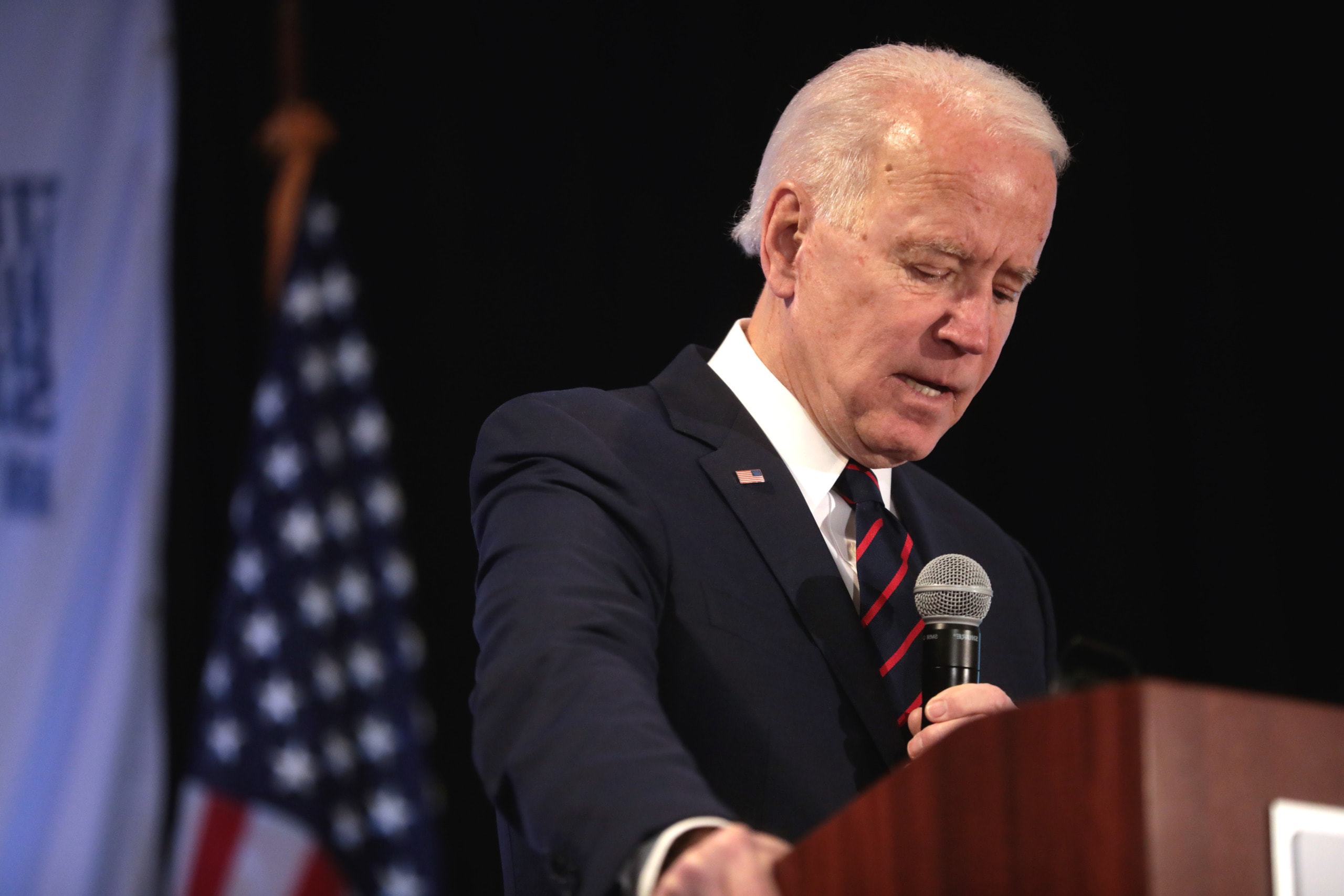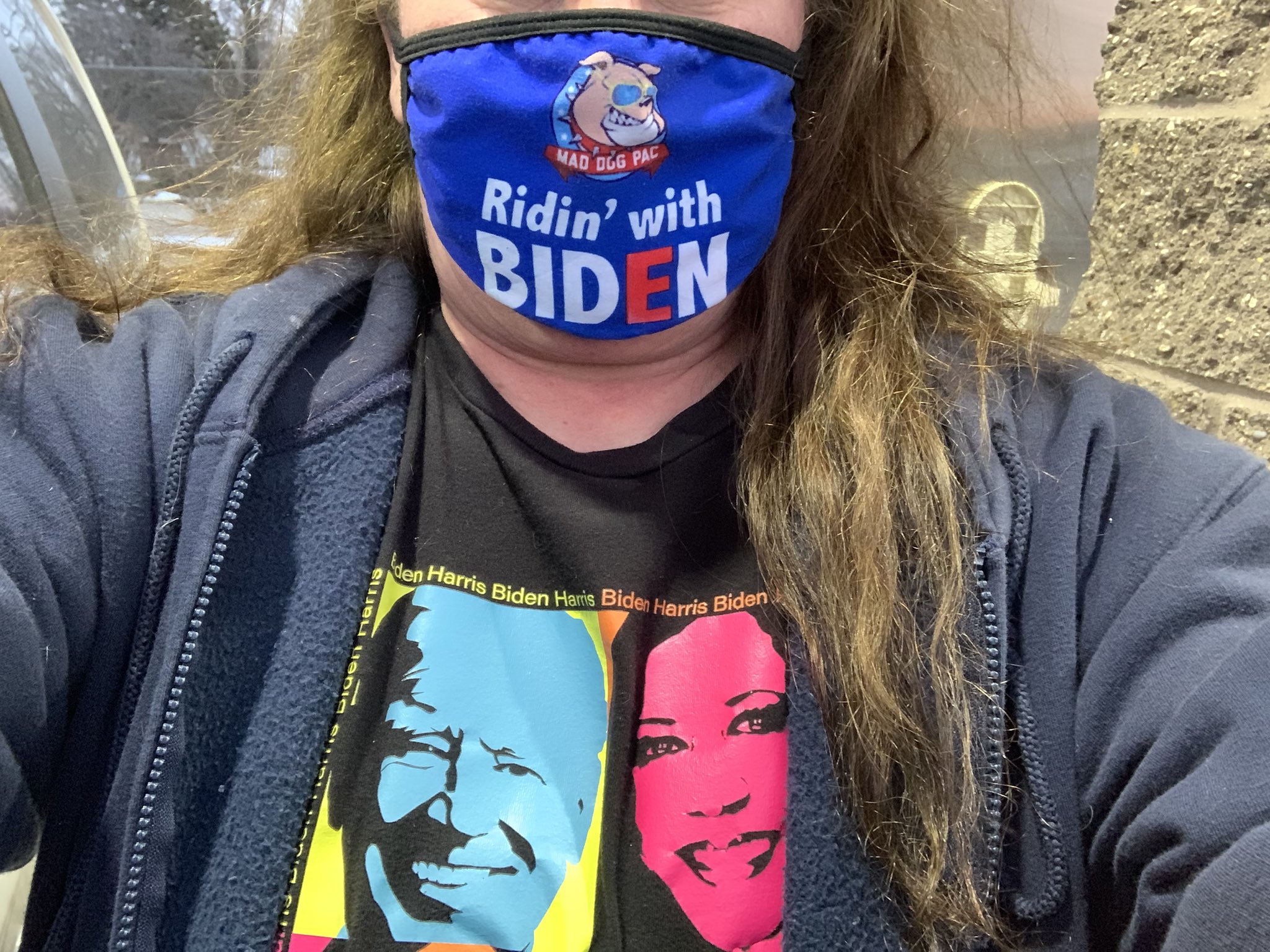Updated November 3, 2021: The election was won by Republican candidate Glenn Youngkin. The following article was written days prior to the election, and reveals why the race unfolded the way it did.
You could be forgiven for thinking that a Virginia gubernatorial election is not exactly essential viewing. Considering the circus of US politics in recent years, why would an off-year governor’s race on the east coast be interesting to anyone not living in the state?
However, delving into the election presents a fascinating view into the current state of the US political landscape, and who ends up in the Governor’s mansion following the vote on November 2 may go some way in answering lingering questions heading into next year’s midterms. Can Republicans toe the line between courting Trump supporters whilst appealing to swing voters enough to win in a statewide race? Can Democrats effectively present any progress to voters on the high-polling issues of climate, pandemic handling, education or the economy? And just how worried should the Democrats be about losing their majorities?
If something can be learned from recent trends in Virginia, the answer to the last question is: a lot.
The race sees former Virginia Governor Terry McAuliffe face off against businessman Glenn Youngkin, in a matchup that pits an establishment Democrat against a Republican that, if victorious, could provide a playbook to other GOP candidates in swing states in next year’s midterms. The former incumbent has been bringing in practically every big name from within the Democratic party in recent weeks to help plead his case for a second term and energise a largely unenthusiastic voter base, whilst Youngkin has been walking the political tightrope of wooing Donald Trump supporters whilst distancing himself from the divisive figure himself.
The success or failure of Youngkin’s attempt at broad appeal is one of the most important elements to look out for as a barometer for Republican candidates next summer.
He proudly accepted Trump’s endorsement, but has largely steered clear of the former president in rallies and messaging. When Trump teased a visit to the state this week, Youngkin maintained the former President was indeed not coming, stating vaguely instead that “we’re campaigning as Virginians in Virginia with Virginians”. When former Trump advisor Steve Bannon hosted a pro-Youngkin event earlier this year that featured a flag commemorating the January 6 riot, Youngkin condemned it as “weird and wrong”.
Whilst faulted by Trump last month for not embracing the “MAGA movement” enough during his run for the governorship, Youngkin’s careful image shows an understanding that alongside Trump’s base, his path to victory requires regaining suburban voters that were turned off by the more repellent factions of the Republican platform in 2020 and helped push Joe Biden over the finish line.
Related Articles: Biden’s Make-Or-Break Moment | Biden’s Climate Policy at Risk Ahead of COP26 Summit | Biden Uses Hurricane Ida Visits to Boost Infrastructure Agenda
Youngkin has been accused of running a policy-scant campaign, and has attempted to overcome his alienating previous experience as a private equity executive, one who has poured $16 million of his own money into his campaign, with a nice-guy, ‘suburban dad’ facade.
The message from the McAuliffe campaign has been clear – undercut Youngkin’s carefully crafted image with the more extreme views from within his party, and imply that he is more of a threat to divisive issues of abortion, healthcare and climate than his campaign would have voters believe. It is an angle that will likely be used by Democrats a lot next summer.
In May, Youngkin stated on a conservative radio show that “President Trump represents so much of why I am running,” a comment frequently brought up by McAuliffe as the Democrats push the narrative that Youngkin is an extreme candidate sheathing his more offensive views when courting moderate Virginians.
This strategic talking point from the Democrats can be effectively summed up by the comments made during a visit to the state on October 26 by President Biden, who warned voters that “extremism can come in many forms. It can come in the rage of a mob driven to assault the Capitol. It can come in a smile and a fleece vest.”
Glenn Youngkin is a right-wing culture warrior who wants to ban books, abortion, and gay marriage. That’s not who we are in Virginia. It’s up to us to choose a better way. pic.twitter.com/8QEIqOMmdg
— Terry McAuliffe (@TerryMcAuliffe) October 28, 2021
Donald Trump will be a factor in next year’s midterms no matter what, and any suggestions that the former president may sit back quietly as the nation goes to the ballot box are from those who haven’t been paying attention. But in potential swing-states such as Virginia, the ability for candidates like Youngkin to both gain his king-maker endorsement in the GOP whilst also appealing to those disenchanted from the more extreme wings of the party will be key to the outcomes of elections across the country.
Whilst not a perfect barometer for the American national constituency, Virginia’s electoral map after voting is finished on November 2 will serve as a useful litmus test to the views of the American public nearly a year into a new presidency. Biden trumped his predecessor by 10 percentage points in the 2020 election, and the state hasn’t had a Republican senator in over a decade. However, before Barack Obama turned the state blue in 2008, no Democrat had won the state in a presidential election since 1964, and the governorship consistently swings between the two parties.
McAuliffe is not short on big names stumping for him, and the urgency coming from his campaign signifies a realisation that this election, one where he held solid leads for the majority of the cycle, is now too close to call.
Voter fatigue less than a year out from an exhausting presidential election and general apathy towards his candidacy is one of the primary concerns for the McAuliffe camp as the race enters its home stretch.
The campaign’s uncertainty over whether Virginians will re-elect McAuliffe as its governor is palpable. Bringing out the big-guns, former President Barack Obama last week urged voters “don’t sit this one out” and attempted to press some importance on the electorate by insisting that this election was a “turning point”. McAuliffe echoed this, setting the election on the national stage by emphasizing that “people are counting on you” across the country.
Other political heavyweights brought out in the final weeks by the McAuliffe campaign in an attempt to energize the voter base include leading Georgia Democrat Stacy Abrams and First Lady Jill Biden, and there are several indicators as to why the Democrat’s anxiety over this election is justified.
A Fox News poll released on October 29 found that likely voters now favoured Youngkin by 53% to 45%, a poll that just two weeks ago had the Democrat leading by five points, 51% to 46%. Among registered voters, McAuliffe’s 11 point lead from two weeks ago has evaporated and turned into a 1% lead for Youngkin.
A recent Washington Post poll has Youngkin, seeking elected office for the first time, leading independent voters 52% to 44%, a group won by Biden by 19% in 2020. A similar swing was found in a recent Monmouth University Poll, which gave Youngkin a 48% to 39% lead with independents which was at one point a 37% to 46% deficit.
Independents are not the only indicator that McAuliffe should be worried. His 14 point lead with women in September has shrunk to just 4%, and his support in the heavily-blue Northern Virginia area has also slipped five points in the past month.
Patrick Murray, director of the independent Monmouth University Polling Institute, said in a press release following the Monmouth University poll that “suburban women, especially in Northern Virginia, have been crucial to the sizable victories Democrats have enjoyed in the commonwealth since 2017. However, their support is not registering at the same level this time around. This is due partly to a shift in key issues important to these voters and partly to dampened enthusiasm among the party faithful.”
To understand why these polls are important indicators to the rest of the nation, look to the candidate’s platforms.
Education may be turning into a key issue
Alongside the spectre of Trump undercutting numerous facets of the election cycle, a surprising new angle has emerged out of state-level hostilities into what could become a nationally important issue: education.
Youngkin focused on issues of education early and often, hitting Democrats on everything from school-closures to critical race theory, and an unexpected weakness opened up that could exacerbate Democrat candidates nationally come next summer. Factors such as mask mandates and school board disputes have somewhat merged the issues of the pandemic and education, and with this election closing in, it would appear that Republicans have crafted an advantage out of it.
In a September debate, McAuliffe’s statement that parents should not be dictating what schools teach their children may go down as his own Hillary-esque “deplorables” gaffe. As reported by The Week, it was a moment that led Virginia State Senator Amanda Chase to remark at a conservative, pro-Youngkin rally that “we just won the election!”
That may be a stretch, but it is easy to see that the comment provided Youngkin with a goldmine of a sound-bite, and he has appeared to seize control of the issue as the election comes to a close. The Fox News poll found that McAuliffe’s 10 point lead among parents two weeks ago has flipped to a 14% lead for the Republican, and if he is to triumph on November 2, it may be a sign that the Democratic Party’s hold on education has slipped.
Whilst differing polls should all be taken with a pinch of salt, and most have it as a virtual coin-toss, recent trends are certainly ominous for McAuliffe supporters hoping for an easy victory in the ‘blue state’.
The Monmouth University poll demonstrates how shifts in the issues Virginians think is most important are advantaging Youngkin. The issues ranked as either the first or second most important to voters found education gaining 10% in a month, to 41%, with only the economy ranking higher at 45%.
Youngkin leads the former governor 39% to 34% on trust over handling jobs and the economy, whilst McAuliffe’s once substantial 41% to 28% advantage on the pandemic has slipped to just 37% to 31% in recent weeks, and his five point lead in education has been levelled.
“McAuliffe’s sizable edge on handling Covid and his competitiveness on economic issues last month helped put him ahead in this race, but Youngkin has been able to change the terms of the debate, by using his opponent’s words on parental involvement in the school curriculum to shift voter attention on that issue” said Murray, adding that “not only has this eaten away at the Democrat’s previous advantage on education policy, but it has also raised doubts about McAuliffe’s ability to handle the pandemic.”
Speaking to Joy Reid, McAuliffe doubles down on smearing concerned parents, saying parents at school board meetings believe in “a made up, racist dog whistle” and their behavior “sickens me” b/c Youngkin wants “parents fighting parents, and parents fighting teachers” #VAgov pic.twitter.com/WkYWmYytbG
— Curtis Houck (@CurtisHouck) October 28, 2021
However, despite the numerous polls showing McAuliffe’s fall, the one most inauspicious for Democrats nationally is voter enthusiasm. The Republican voting bloc currently has a 49% to 23% enthusiasm gap to the GOP in the Monmouth poll, whilst findings from The Wason Center give Republicans an 80% to 65% enthusiasm advantage. One can certainly lay some blame at the door of President Biden.
The President’s promise of delivering landmark infrastructure packages that would revolutionise the American economy has fallen flat, stalled through Washington’s lethargic bureaucratic stages and giving off the impression of an unorganised or simply divided Democratic Party. To an electorate that delivered a total majority, albeit an exceedingly fragile one, to the Democrats in 2020, further promises may fall on deaf ears – the optics of failing to deliver progress are clear.
It is important to note in all of this, the Democrats should already be anticipating losses. The Democratic Party currently holds just an 8 seat majority in the house, and the Senate is tied at 50-50; since 1946, the average number of House seats lost by the president’s party in midterms is 25, and four in the Senate.
With history not on their side, the loss of the Virginia governorship could be prophetic to a disastrous midterm result for Biden. Will the alienating influence of Trump actually cause as much damage as hoped to swing-state moderates? Are the Democrats losing their grip on the issues of the pandemic and education? November 2 will go some way to answering pressing questions like these, and more than just the governorship of Virginia is up for grabs.
Editor’s Note: The opinions expressed here by Impakter.com columnists are their own, not those of Impakter.com. — In the Featured Photo: Terry McAuliffe and President Biden. Featured Photo Credit: Brittany Dilberto, Flickr.


